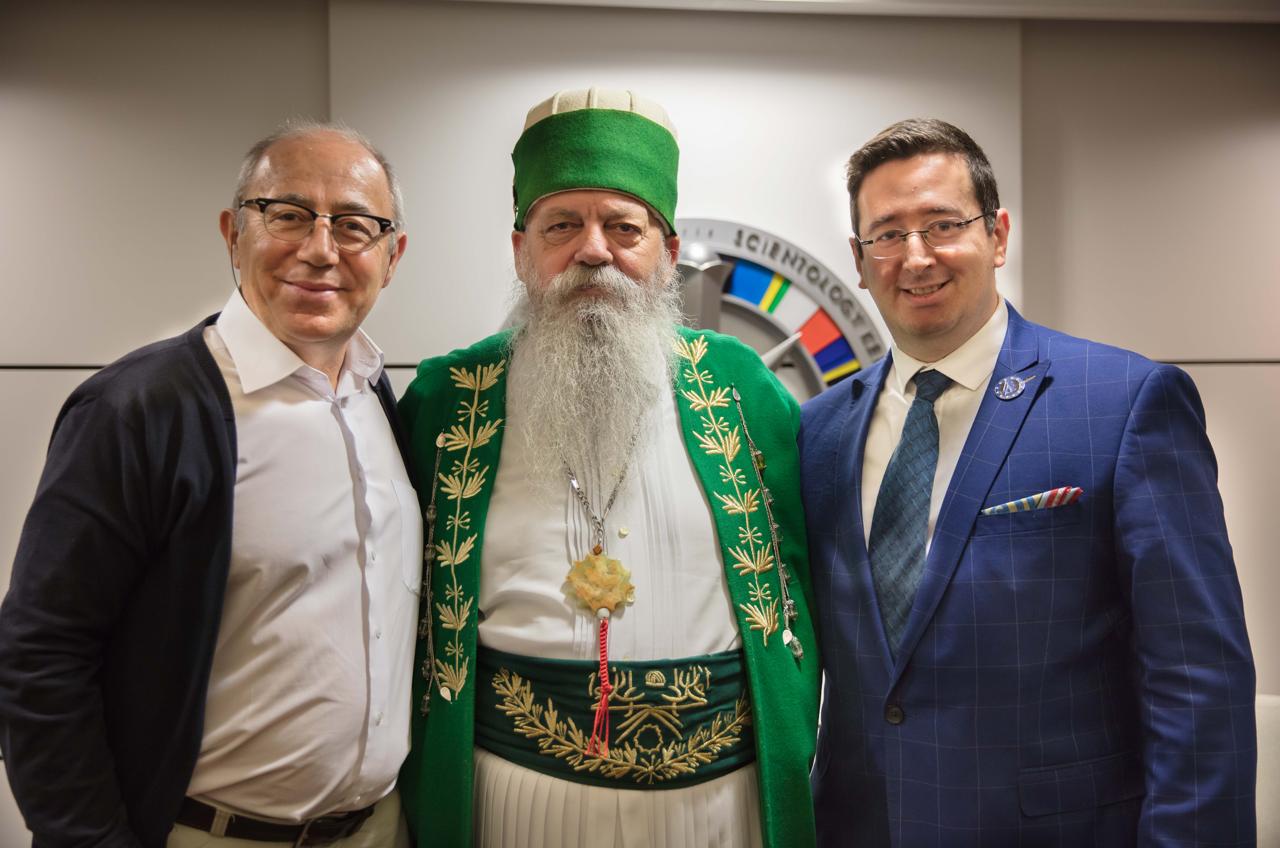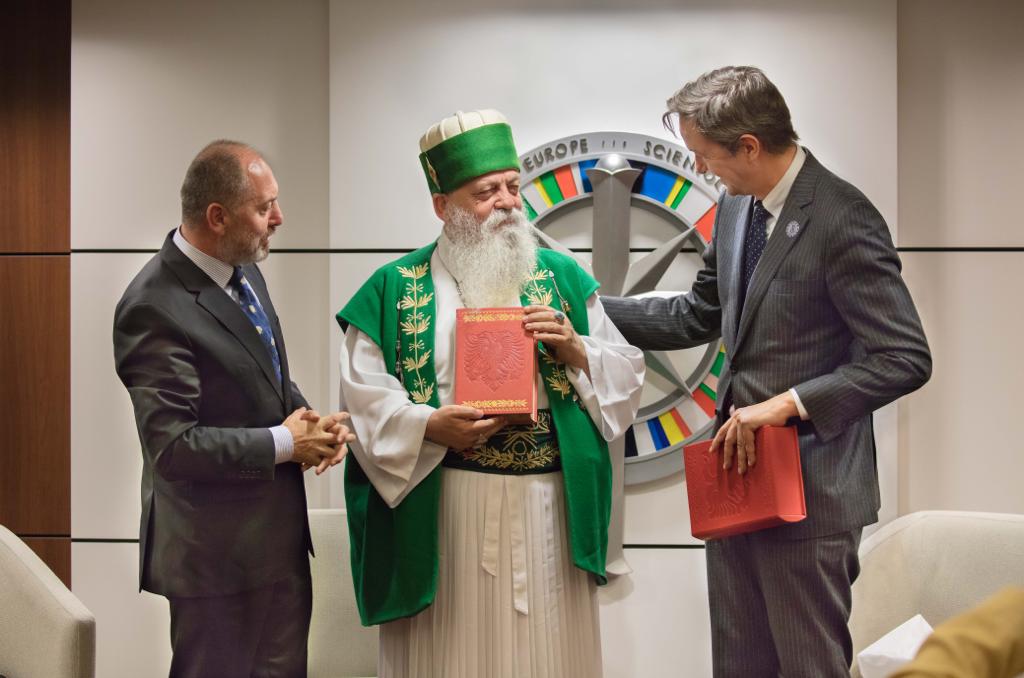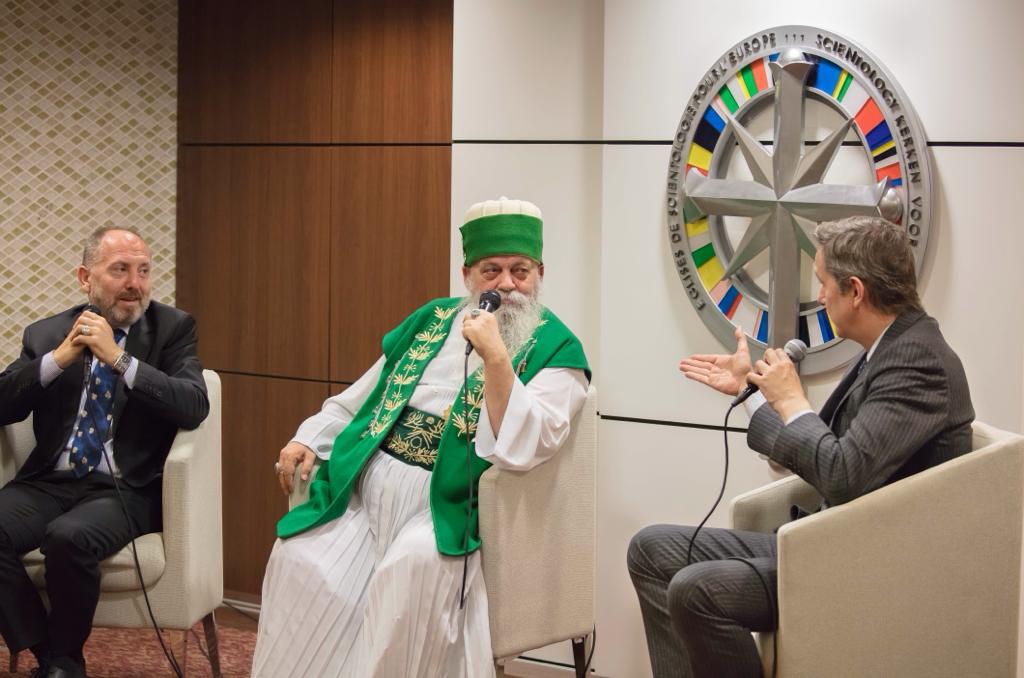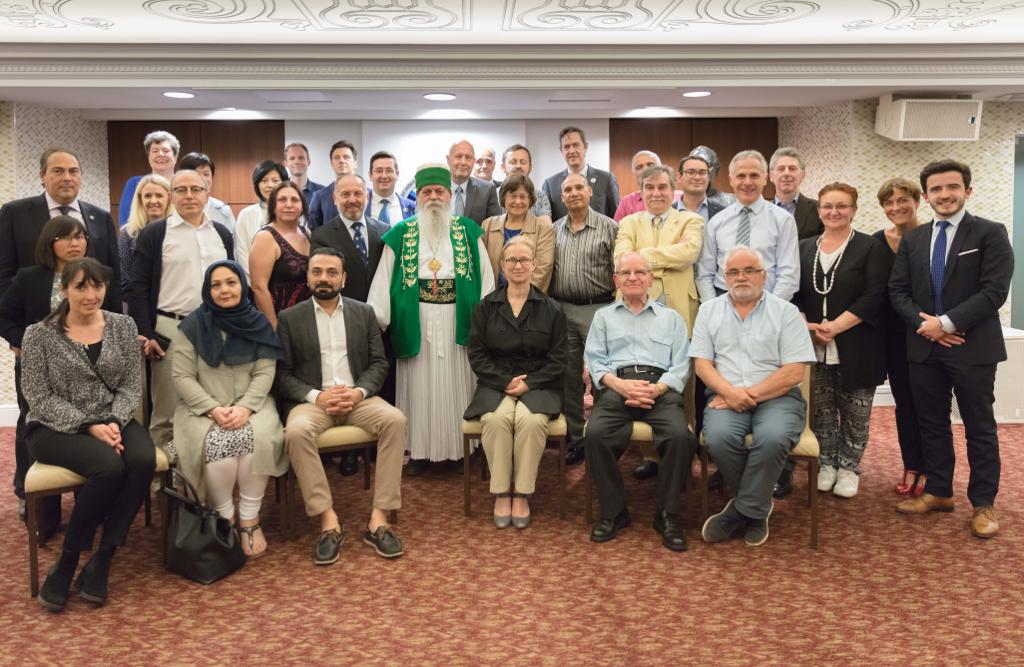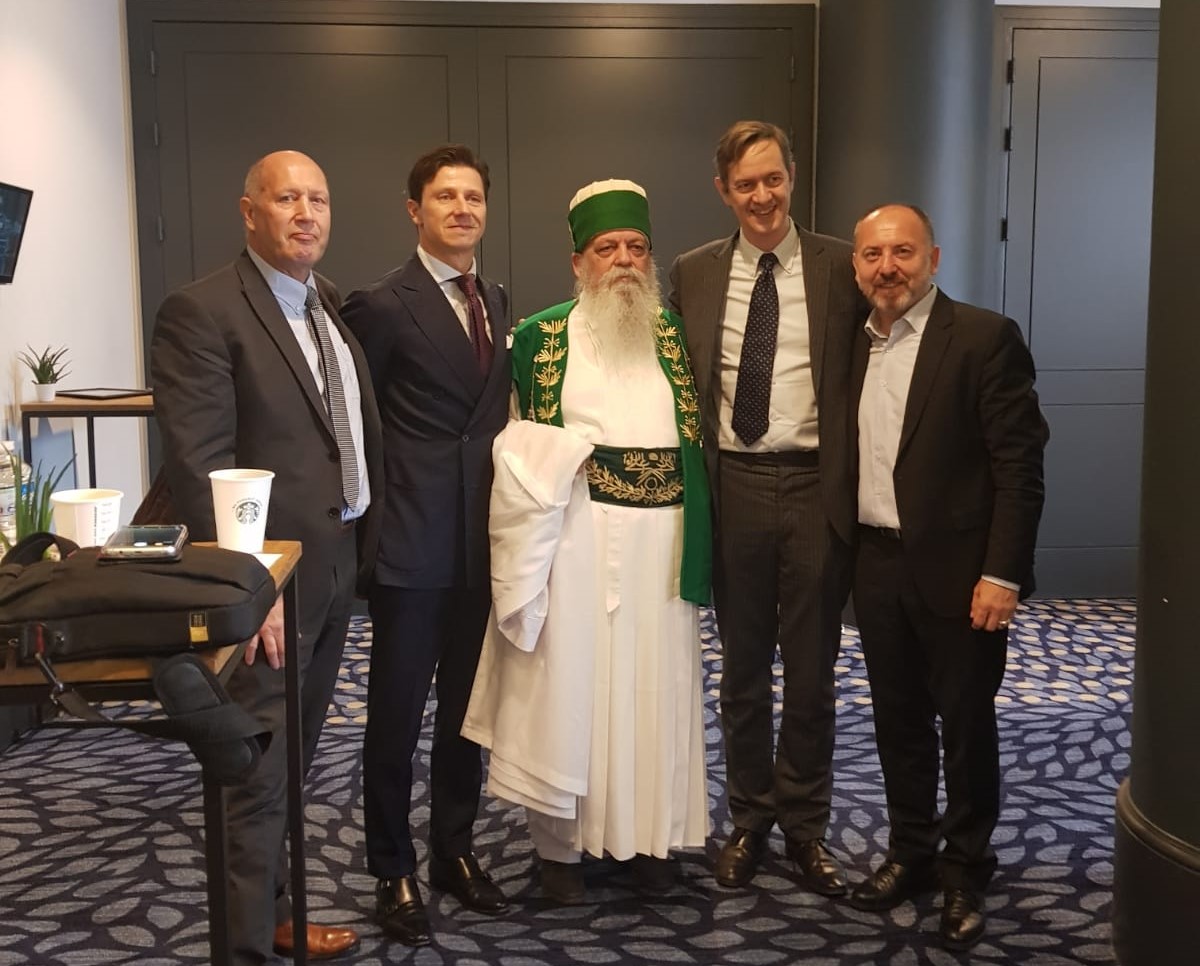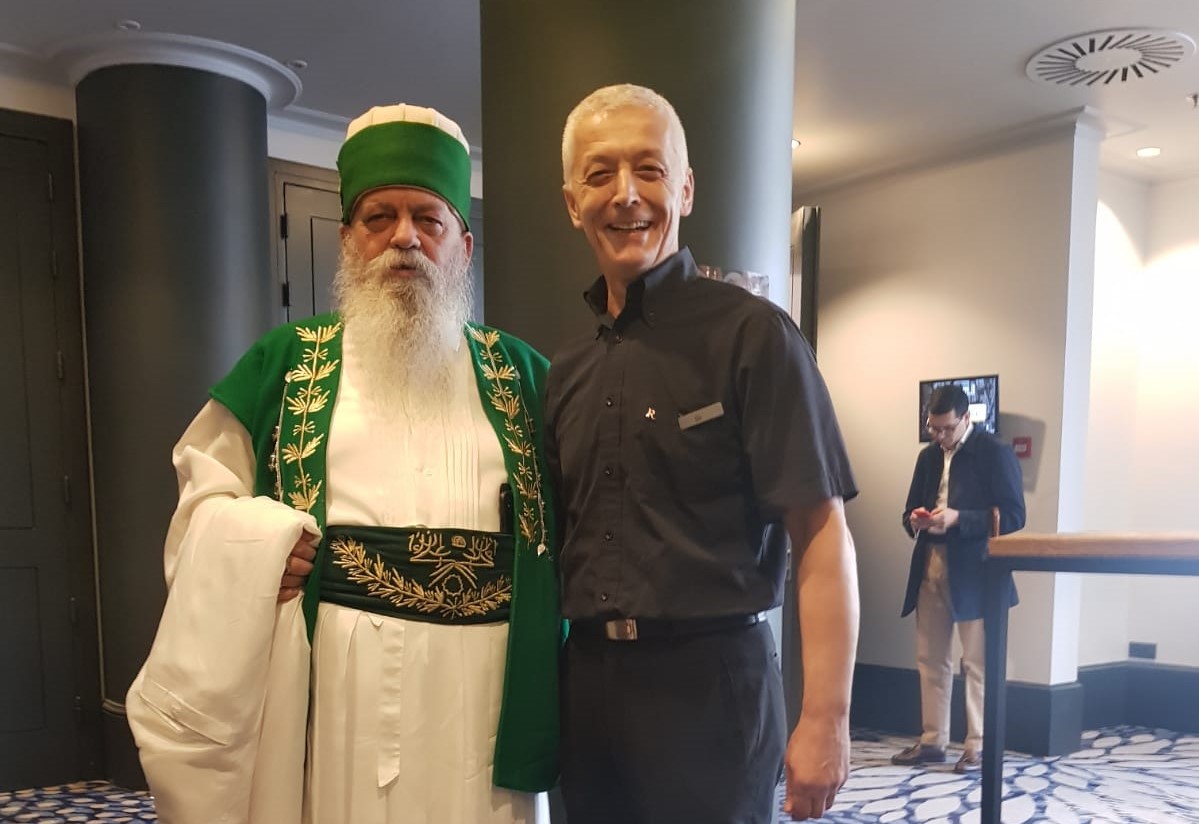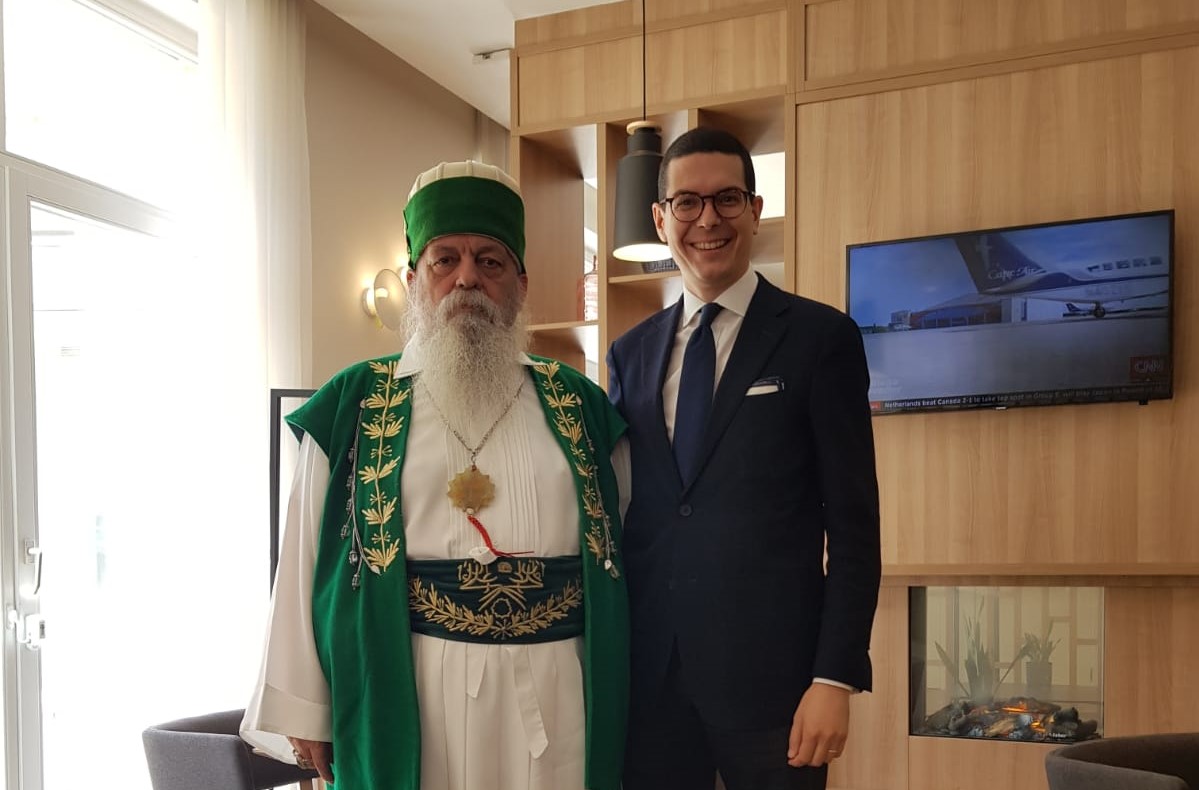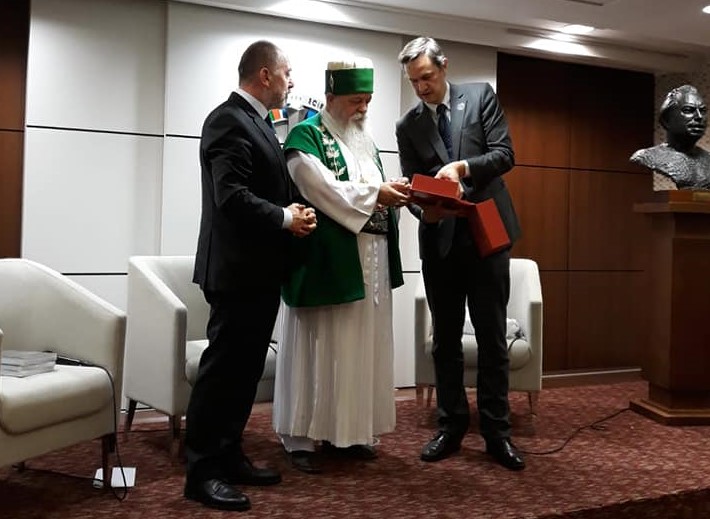
In this meeting participated around 40 people: representatives of various religions (Catholic, Protestant, Mormons, Muslims, Sikhs, Scientologists, etc.), one epresentative of the European Commission, several members of Embassies, and activists for Freedom of Religion.
In this event, normally they held each one a speech about 3 to 5 minutes, but the Headfather, His grace Hajji Dede Edmond Brahimaj spoke for more than 20 minutes about the challenges that Bektashism are facing regarding freedom of religion.
The word of Headfather:
Bismilahim Rrahmani Rrahim!
In the name of God, the Most Beneficent, the Most Merciful.
Dear brothers and sisters, high representatives of different religions and different belivers!
Honorable deputies and representatives of the European Forum on Religious Freedom!
It is my special pleasure to share together the time available to talk about the tarikat I represent and allow me first to wish and bless you in the name of millions of Bektashian believers all over the world: "I wish you to have blessings of Allah, Muhammad Ali , for you and all your families! "
Born almost 800 years ago, the Bektashi tarikat has a great fortune to have powerful foundations in Asia at that time. Undoubtedly, among the most basic and important elements of this foundation, the essence of this belief has been and remains the wisdom of founder Haxhi Bektash Veliu, who mercyed his emblematic holiness only through the devotion to the Creator. I believe that all of us, who are here today, share together that profound knowledge is value for wisdom, but is not everything. Only when knowledge is joined to devotion to religion, unceasing war of temporal things of this world, ego exile, and fasting on its supreme stairs, then imply wisdom itself.
The land in which the Islamic tarikat of Bektashism was born and grew, was not like a sun-crushed July land that awaits the rain with the impatience of its own existence. There were grass and flowers on this earth, there were thorns and bushes, had centuries-old and stately woods completely indifferent to the tarikat that were born. But the sapwood of bektashism grew strongly, precisely because it was blessed by the wisdom of Haxhi Bektash Veli and was then watered with the clear waters of Ehli-Bayt, and the devotion of dervishes and fathers. As rarely in religious contexts, the Bektashi clerics identified themselves and their work with the birth and growth of an inseparable brotherhood inside the community.
It is almost unique in the religious, yesterday and today's world, the perception of Bektashism related to its primary followers, the most devoted ones in the everyday language called muhiban. According to customary Sufi codes, these practitioners, on the night set by spiritual leaders, must be celebrated through the blessing on “ the Mejdan” of “tekke” in the presence of other boys or girls who may not have known them until that moments. Usually in Mejdan, we Bektashi clerics celebrate many spiritual members, coming from different provinces or different ethnicities. The ceremonial aspect certainly has its own values in this case. But what remains sacred to the mejdan of teqe is precisely the fact that boys and girls, women and men who take the title of "myhibanit", in life are brothers or sisters of each other, in a way more or less similar to the elements of baptism in Orthodox Christianity. Our Myhibans remain sisters and brothers, with the same obligations deriving from the biological family.
The values of this brotherhood have been and will remain visible, especially in the Balkan lands since the first tekkes were erected in the thirteenth century and to this day. For the geographical, strategic, historical and religious conditions, the Balkans are still identified today with the double word: powder keg!
This was also the main mission of the Bektashi tarikat, to nurture the bonds of faith, to build bridges of peace and hope with the idea that we are children of one God, and we are destined to live together on this earth and under this sky. The Bektashi tekkes , from the early Middle Ages to the present, are spiritual and physical peace retreats. Their doors have been and remain open day and night, not just for our believers but also for every Christian, Jewish, or other believer. There are dozens of foreign tourists and scholars such as Justin Godard, Edit Durham, Andrea Karkavitsas, Teodor Ipen, Margaret Hasluk, Noel Roger, Luis Zharej, Franc Babinger, Jashar Rexhepagic, Roberto Moroko dela Roko, Nuraj Bozbore and French Trix from The United States, who have praised not only the hospitality of Bektashi but also the precious intellect and goodness that our clerics have prayed with so much love and openness.
An indisputable merit of my Albanian nation is also the support given to the Bektashi tarikat on one of its most difficult days, in the late 20th century, when, after the secularist reforms in Turkey, the whole tarikat were not breathing. In those conditions of survival, the dervishes and fathers of Albania brought their emblematic brotherhood to the former Bektashi World Leader, Sali Niazi Dedese, not only accepting them in their bosom, but also contributing with every means of preservation and development of values of the tarikat. They realized that the great time of Bektashism's history was falling for them, so they held the responsibility of continuity on their shoulders. Even today's Bektashi brothers, wherever they live and work, they try to convey to the generations the deep love for the Creator, the twelve imams, the homeland and the family, transforming the power of tarikat into conscious energy of peace.
My sister and my brothers!
For the Bektashis of all times, Sufism in essence is the path leading the believers to their divine stations. Indeed, today's theories of Sufism are many, but they converge exactly at one point: tarikat is the way to the heavens, is the correct and sensible guide to spiritual perfection. Even in our consciousness, the idea is that the birthplace of our physical bodies is this world, the birthplace of our spirits, the spiritual world.
Distributed in more than 31 countries, we walk today with the millions of believers through times which are not suitable for the faith. But that has never bothered us.
We have tried to reveal our religious identity within the great family of Islam by building bridges of bondage and trust ,not just for pride, but to make possible contribution to Albania, the Balkans and beyond in Europe, convinced that between us and others have thousands of things that unite us and nothing that separates us. Religious identities, and different cultures, we try to look at them with the eyes of the soul and this makes us approach the others as our biological brother. Lastly, the big European family just wants this: brotherhood of its members.
Thank you all and God bless you!
Amen!
Brussels, 20 June 2019
